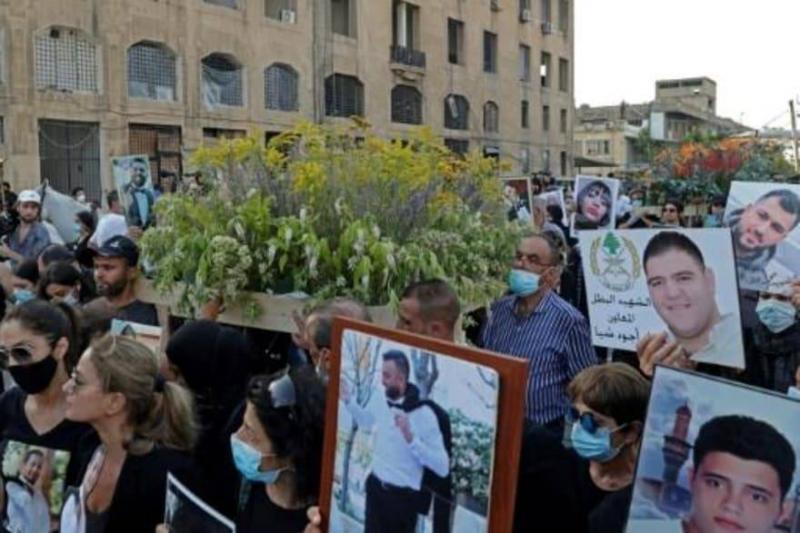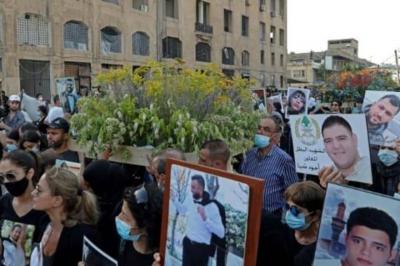A funeral procession began on Sunday evening from the port of the Lebanese capital, winding through the surrounding neighborhoods and downtown Beirut just days after the first anniversary of the massive explosion that claimed over 200 lives. In solidarity with the victims' families who called for this march, dozens gathered at one of the port's entrances, including women dressed in black carrying torches.
Three "symbolic coffins" carried on shoulders and adorned with flowers led the crowd, followed by wives, sisters, and mothers holding pictures, according to an AFP photographer. One of the banners read, "Ammonium nitrate did this." The procession moved through the heavily affected areas of Gemmayzeh and Mar Mikhal.
Ibrahim Hattit, spokesperson for one of the civil society organizations, stated that the carrying of "coffins is merely a symbolic act to remind people that we carried our victims' and martyrs' coffins in this manner." He added, "We have the right to reach the truth and justice."
On Wednesday, thousands of Lebanese demonstrated demanding justice for the victims and accountability for those responsible, commemorating the anniversary of the port explosion that killed 214 people on August 4. The explosion was caused by large amounts of ammonium nitrate stored since 2014 at the port without safety measures. It was revealed that employees and political officials, along with security and military agencies, were aware of the risks of storing it. However, the local investigation has stalled amidst accusations that the political class is obstructing it.
Helen Atta, who lost her twin brother Abdo (38) in the tragedy, said, "Every day the pain grows in the face of the injustice surrounding this case and the officials' negligence and their evasion of justice." She added, "It's as if nothing happened" after a year, considering that "every Lebanese must take to the streets until justice is achieved." An association addressing the issue of missing persons from the civil war (1975-1990) also participated in the march.




